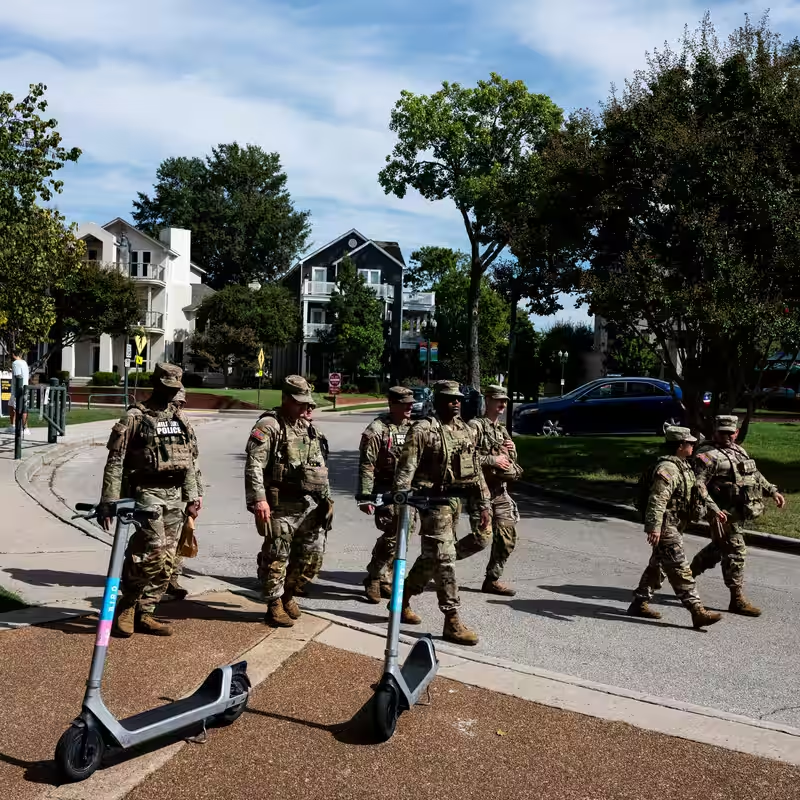Table of Contents
- The Lawsuit That Shook Memphis
- Why Is the National Guard in Memphis?
- Constitutional Concerns at the Core
- Community and Political Reactions
- What Happens Next?
- Sources
The Lawsuit That Shook Memphis
Seven Tennessee officials, including the mayor of Shelby County and six Democratic lawmakers, have filed a lawsuit challenging the deployment of the National Guard in Memphis. Backed by the liberal-leaning legal nonprofit Democracy Forward and the National Immigration Law Center, the suit argues that the presence of troops on city streets violates both state and federal constitutional principles.
At the heart of the case is a fundamental question: Can a governor legally deploy the National Guard in a major city without clear evidence of rebellion or invasion—the only two conditions explicitly allowed under Tennessee’s constitution?
Why Is the National Guard in Memphis?
The deployment is part of President Donald Trump’s broader “nationwide crackdown on crime,” which has targeted several Democratic-led cities, including Portland, Chicago, and now Memphis. In Tennessee, however, the situation is unique: while other targeted cities are in blue states with Democratic governors who’ve resisted federal intervention, Tennessee’s Republican supermajority—including Governor Bill Lee—has welcomed the move.
Since late September, hundreds of federal agents from the FBI, ATF, DEA, and U.S. Marshals Service have joined Tennessee state troopers and National Guard members in a coordinated task force. While federal and state law enforcement can make arrests, the National Guard’s role is limited to patrolling—though their presence in fatigues has stirred deep unease among residents.
National Guard in Memphis: A Symbol or a Solution?
Supporters, like Republican State Senator Brent Taylor, claim the operation is already yielding results: “We’re seeing safer streets, quieter neighborhoods,” he posted online, calling the initiative a chance to “Make Memphis Marvelous.”
But critics argue that militarized responses do little to address root causes of crime—like poverty, lack of mental health services, and underfunded schools—and instead deepen community trauma, especially in Memphis’s majority-Black neighborhoods.
Constitutional Concerns at the Core
The lawsuit zeroes in on Governor Bill Lee’s authority. Tennessee’s constitution permits militia deployment only in cases of “rebellion or invasion”—terms the plaintiffs say do not apply to Memphis, where crime, while persistent, does not constitute an existential threat to state sovereignty.
“Rebellions and invasions are existential threats to a sovereign government,” the filing states. “There is, at present, no ‘rebellion’ or ‘invasion’ in Memphis within the meaning of the Constitution.”
Additionally, the suit criticizes the lack of consultation with local leaders and the absence of legislative approval. The Tennessee General Assembly is not in session, and no vote was held—raising questions about democratic accountability.
Community and Political Reactions
Shelby County Mayor Lee Harris, a lead plaintiff, said the deployment “erodes public trust and heightens fear,” adding that “real public safety comes from investing in education, housing and mental health, not from militarizing our communities.”
Notably absent from the lawsuit is Memphis Mayor Paul Young, a Democrat who has expressed reservations about the Guard’s presence but chose not to join the legal challenge. His administration stated it “will not participate in this litigation,” emphasizing collaboration with state and federal partners to “protect residents and reduce crime.”
Meanwhile, community organizers warn the federal presence could deter immigrants from seeking help, worsen court backlogs, and revive painful memories of over-policing in Black neighborhoods.
What Happens Next?
A request for an immediate restraining order to halt further deployment was denied by Davidson County Chancery Court Chancellor Patricia Head Moskal. Instead, a full hearing is scheduled for November 3, 2025.
As the legal battle unfolds, Memphis remains a flashpoint in the national debate over public safety, federal overreach, and the proper role of the military in domestic affairs. The outcome could set a precedent for how—and whether—National Guard troops can be used in urban crime-fighting efforts across the country.




